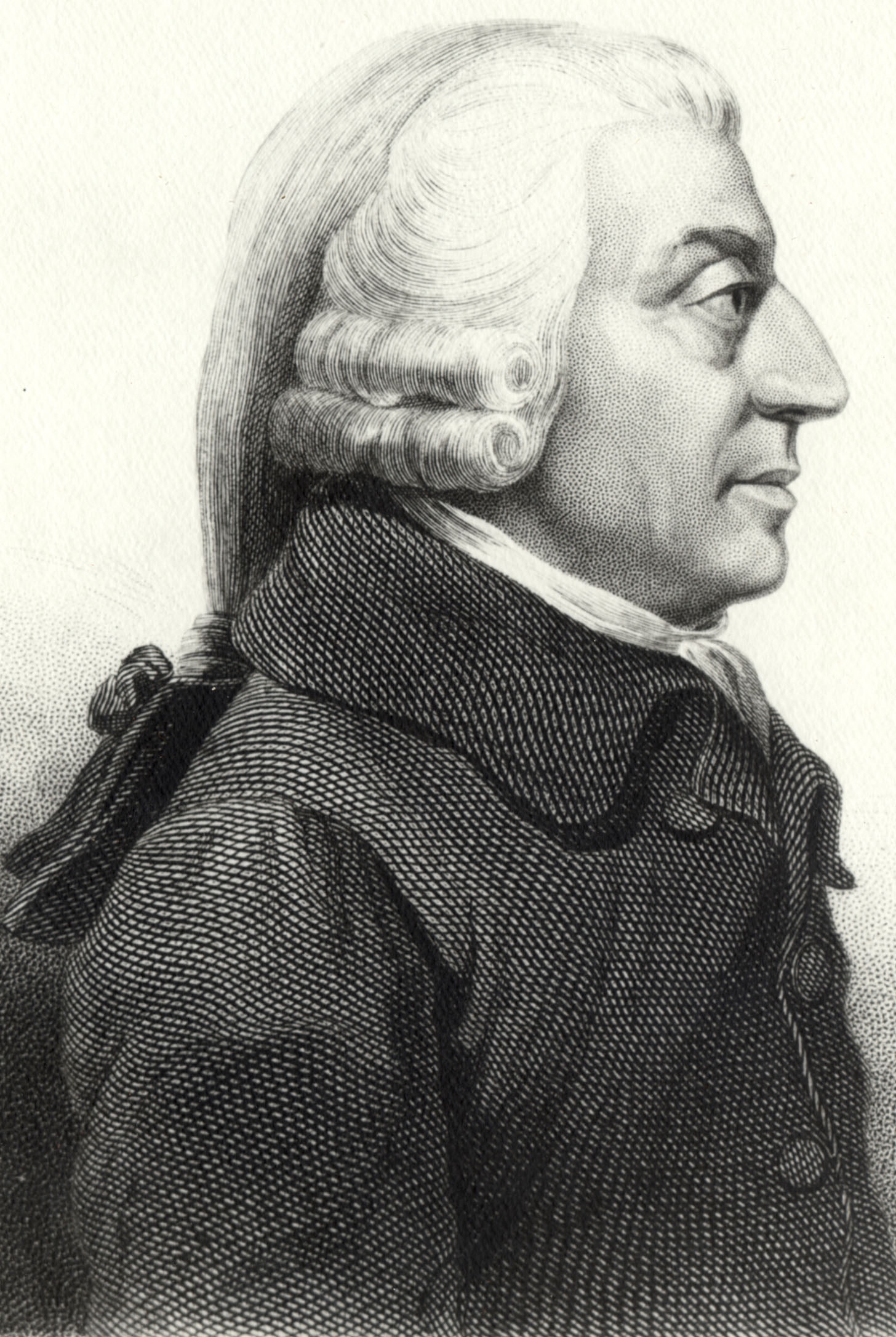Source: (1776), Book I, Chapter VIII, p. 80.
Adam Smith Quotes
Source: (1776), Book V, Chapter I, Part IV, Conclusion, p. 881.
Source: (1776), Book V, Chapter I, Part III, p. 845.
“But bounty and hospitality very seldom lead to extravagance; though vanity almost always does.”
Source: (1776), Book V, Chapter III, Part V, p. 987.
Source: (1776), Book IV, Chapter V, Digression, p. 572.
Source: (1776), Book V, Chapter II, Part II, p. 896.
“Hatred and anger are the greatest poison to the happiness of a good mind.”
Section II, Chap. III.
The Theory of Moral Sentiments (1759), Part I
Source: The Wealth of Nations (1776), Book IV, Chapter II
“China is a much richer country than any part of Europe.”
Source: (1776), Book I, Chapter XI, Part III, (First Period) p. 221.
Source: (1776), Book IV, Chapter V, paragraph 82.
Source: (1776), Book I, Chapter IV, p. 34.
Source: (1776), Book II, Chapter III, p. 377.
“The great affair, we always find, is to get money.”
Source: (1776), Book IV, Chapter I, p. 460.
Source: (1776), Book V, Chapter III, Part V, p. 1012.
“Monopoly of one kind or another, indeed, seems to be the sole engine of the mercantile system.”
Source: (1776), Book IV, Chapter VII, Part Third, p. 684.
Source: (1776), Book V, Chapter II, Part II, p. 893.
Chap. I.
The Theory of Moral Sentiments (1759), Part IV
Source: (1776), Book IV, Chapter II
Source: (1776), Book I, Chapter XI, Part II, p. 202 (See also Thorstein Veblen).
Chap. II.
The Theory of Moral Sentiments (1759), Part V
Section III, Chap. II.
The Theory of Moral Sentiments (1759), Part I
Source: (1776), Book I, Chapter VIII, p. 86.
Source: (1776), Book IV, Chapter I, p. 471.
Section II, Chap. II.
The Theory of Moral Sentiments (1759), Part VI
Source: (1776), Book IV, Chapter VII, Part Second, p. 619.
Source: The Wealth of Nations (1776), Book IV, Chapter VIII, p. 721.
Source: (1776), Book IV, Chapter III, Part II, p. 531.
Source: (1776), Book V, Chapter II Part II, p. 893.
Source: (1776), Book IV, Chapter II, p. 489.
Introduction and Plan of the Work, p. 2.
(1776)
Section II, Chap. III.
The Theory of Moral Sentiments (1759), Part II
Chap. VI.
The Theory of Moral Sentiments (1759), Part III
“Nothing but the most exemplary morals can give dignity to a man of small fortune.”
Source: (1776), Book V, Chapter I, Part III, Article III, p. 874.
Introduction and Plan of the Work, p. 1.
(1776)
Source: (1776), Book I, Chapter VIII, p. 91 (Oatmeal in England makes for great horses, in Scotland Great Men).
Source: (1776), Book V, Chapter I, Part III, p. 821.
Source: (1776), Book IV, Chapter V, p. 584.
Source: (1776), Book V, Chapter I, Part III, Article II, p. 847.
Source: (1776), Book IV, Chapter II, p. 486.
Source: (1776), Book III, Chapter II, p. 426-427.
Source: (1776), Book I, Chapter VII, p. 69.
Source: (1776), Book V, Chapter II, Part II, p. 892.
Source: (1776), Book V, Chapter I, Part III, p. 806.
“Lotteries are a tax on ignorance.”
http://www.guardian.co.uk/comment/story/0,,581090,00.html
Attributed
